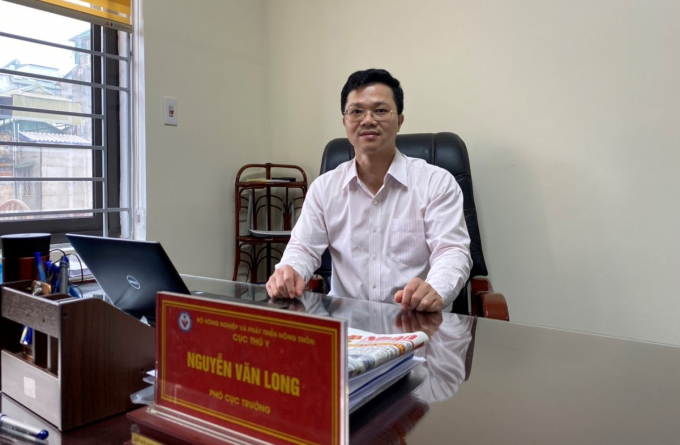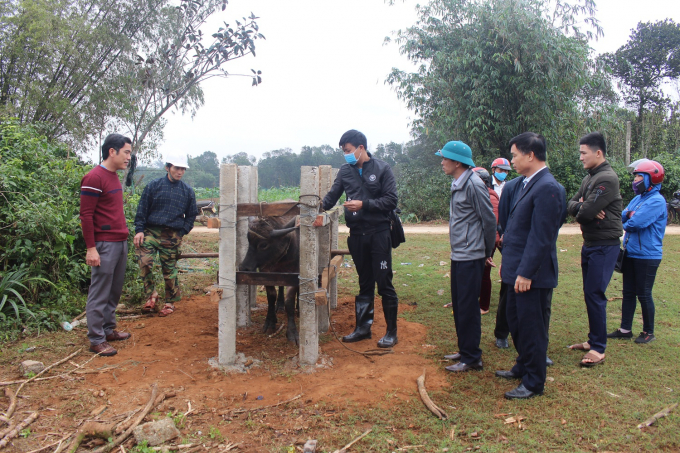June 24, 2025 | 07:53 GMT +7
June 24, 2025 | 07:53 GMT +7
Hotline: 0913.378.918
June 24, 2025 | 07:53 GMT +7
Hotline: 0913.378.918

Deputy Director of the Department Nguyen Van Long said that the MARD has granted approval of urgent importation of more than 4 million doses of vaccine against LSD, satisfying the need of localities in the coming time. Photo: Nguyen Huan.
According to Mr. Nguyen Van Long, the LSD virus entered Vietnam in October 2020. Since then, lumpy skin disease (LSD) outbreaks were reported in 308 households, 293 wards of 24 provinces and cities. Over 4,200 animals have been infected, of which 381 died and their carcasses had to be destroyed.

Over 200,000 vaccine doses have been given to the herds. 500,000 doses of Lumpyvac vaccine have arrived in Vietnam and are under quality assessment process before being used. Photo: TL.
Based on the epidemic developments and as per regulations, so far the Department has requested the MARD to allow the import of more than 6 million doses of LSD vaccines for the urgent preventive vaccination in foreseeable future.
After the importation, the vaccine quality is assessed in terms of its sterile conditions, safety, and efficacy.
As of 26 February 2021, the Department’s testing agencies reported that Lumpyvac meets all requirements. Other vaccines are still under the assessment process.
Under the provisions of the Veterinary Law, the Minister of Agriculture and Rural Development is responsible for making decision regarding the use of vaccines whose circulation in the country are not yet approved in dealing with the emergency situation. Such decision shall be made based on the vaccine circulation permission of the exporting country, as well as quality assessment results given by authorized agencies in Vietnam.
Translated by Meagan Phan

(VAN) Vietnam's national goal programs have effectively mobilized the combined strength of agriculture, farmers, and rural areas, thereby enhancing the material and spiritual well-being of the Vietnamese populace.

(VAN) The waste of resources from agricultural by-products and the situation of counterfeit and poor quality goods in production causing losses of thousands of billions were pointed out by the National Assembly deputy.

(VAN) After 5 years of implementation, the CAI initiative has helped coffee growers change their farming practices, moving toward responsible agriculture that meets global export standards.

(VAN) The primary prerequisite for the comprehensive and robust integration of Vietnam's livestock sector into the global value chain is the establishment of a disease control system.

(VAN) The results of national programs are essential for establishing a contemporary livestock sector that is well-equipped to meet the demands of both domestic and international markets, with robust biosafety standards.

(VAN) The UNESCO Global Geopark revalidation of Non nuoc Cao Bang and the transition to a two-tier administrative model are presently undergoing a pivotal moment in Cao Bang, the northernmost province of Vietnam.
/2025/06/13/5330-2-004539_953.jpg)
(VAN) Changing policy mindset and removing investment barriers are urgent requirements to open up new development space for enterprises in the agricultural sector.